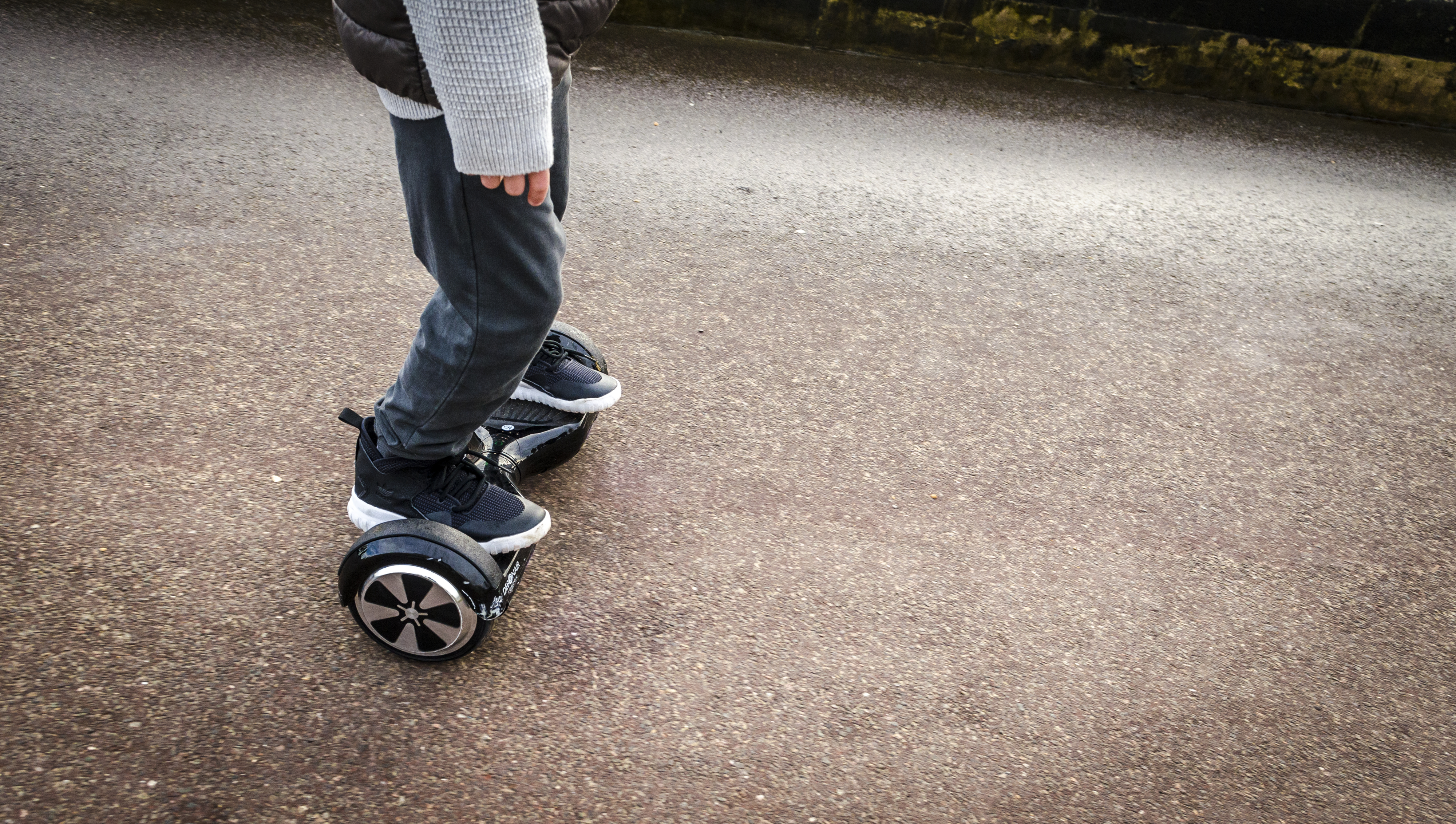
Philadelphia City Council considers hoverboard restrictions for young users.
With some online retailers having reported a sale every 12 seconds on Cyber Monday, the hoverboard has been hailed as one of the most popular gifts of the 2015 holiday season. However, amid allegations that hoverboards—motorized, self-balancing scooters—can catch fire and can cause severe user injuries due to falls, regulators have started to look at the products more critically. Cities, states, universities, and even entire countries have begun to regulate hoverboard use, and soon, Philadelphia may join the ranks of these hoverboard regulators by enacting a newly proposed consumer safety ordinance.
Philadelphia Council Member Bill Greenlee introduced a hoverboard bill in January 2016. In its current form, the bill would prohibit hoverboard use by anyone under the age of 12 years, unless the user wears a helmet, kneepads, elbow pads, and wrist guards. Describing the motivation behind the bill, Council Member Greenlee reportedly stated, “The easiest thing to deal with, at first, is the safety of children.”
Philadelphia police would be tasked with enforcing the ordinance and a violation could result in a fine of up to $300. Currently, hoverboards are not regulated in Philadelphia or Pennsylvania, but state law does include a similar provision for bicycles. In Pennsylvania, all bicycle riders under 12 years old are required to wear a helmet.
Philadelphia’s bill resembles a recently passed California law. As of January 1, 2016, a person must be at least 16 years old to ride a hoverboard in public in California. The law also requires riders to wear a helmet and prohibits hoverboard operation on roads with a speed limit exceeding 35 miles per hour.
Some sellers of hoverboards reportedly find the California law unnecessary and compare hoverboards to bicycles or skateboards. However, New York City, which completely banned hoverboards on all streets and sidewalks last year, considers hoverboards distinct from bicycles and skateboards. The city’s police department classifies hoverboards as “motor vehicles that cannot be registered.” Under New York law, these types of vehicles cannot be operated on public streets or on sidewalks.
The New York City ban has also garnered negative attention. State Senator Jose Peralta has challenged the ban and proposed a bill that would amend the state law that regulates motor vehicles. The bill would exempt hoverboards from the definition of motor vehicles and would allow individual cities to decide how to regulate hoverboards, rather than create a statewide ban.
On the national level, the federal government has not passed any hoverboard regulations. The Consumer Product Safety Commission (CPSC), the federal agency tasked with protecting the public from hazardous products, is currently collecting information and investigating claims related to the fire hazards and fall risks associated with hoverboards. The CPSC has not released any formal findings from its investigation, but recommends that all hoverboard users wear proper safety equipment and take steps to reduce any fire hazards. The agency encourages consumers to continue reporting any related incidents.
Compared to the United States, other countries have regulated hoverboard use more proactively. For example, the United Kingdom (U.K.) has already banned hoverboard use on all public lands. The U.K.’s hoverboard regulation mirrors the country’s ban on the public use of the Segway, another two-wheeled, motorized, personal transportation device. In contrast to the U.K., the majority of U.S. states permit Segway use, although some municipalities limit the areas where users may operate the devices.
Government bodies are not the only source of hoverboard regulations: dozens of private and public universities also restrict hoverboard use. Some universities, like the University of Illinois at Urbana-Champaign, only bar hoverboards in university buildings due to associated fire hazards, but other universities have instituted campus-wide bans of the devices.
Private companies have responded to hoverboard criticisms as well. According to the CPSC, retail giant Amazon voluntarily agreed to give full refunds to any customer who purchased a hoverboard through its website.
Recently, Underwriters Laboratories (UL), a private company that tests product safety, announced that the company has not certified the safety of any individual hoverboard model. UL explained that their logo appears on some hoverboard models because they have tested and certified individual parts of those hoverboards. However, the company noted that certifying individual components is different than certifying an entire product.
With the varying landscape of hoverboard regulations across the country and the world, it remains to be seen what path Philadelphia will ultimately take. Fellow Council Member Allan Domb has already expressed his support for the bill and has agreed to co-sponsor it. The Council’s Committee on Streets and Services discussed the bill at a recent hearing and gave the bill a favorable report. Now, the bill awaits a vote by the full Council.



